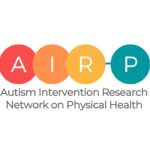Home / Stories /
UW IHDD Announces Inaugural Pilot Grant Winners
We are thrilled to announce the recipients of our inaugural pilot grants for 2024-2025. Thanks to the generous support of foundry10, four early-career researchers have been awarded $10,000 each to advance innovative projects in intellectual and developmental disabilities research, with one additional grant funded by the IHDD.
These competitive pilot grants reflect IHDD’s commitment to supporting research that addresses gaps in understanding and improving outcomes for individuals with intellectual and developmental disabilities.
 Ensuring Safe Epilepsy Therapies in Pregnancy
Ensuring Safe Epilepsy Therapies in Pregnancy
Michelle’s project aims to investigate the long-term effects of antiseizure medications (ASMs) on children born to mothers with epilepsy. Through preclinical models, she will study how the use of multiple ASMs during pregnancy, specifically lamotrigine and levetiracetam, impacts cognitive development and autism-like behaviors in offspring. This research seeks to develop new safety guidelines for epilepsy treatments during pregnancy.
 Increasing accessibility with mobile data collection
Increasing accessibility with mobile data collection
Families of children with Down syndrome face many barriers to research participation. It can be difficult for families to travel to research sites, which are usually located at major academic medical centers, due to child behavioral concerns during long travel to unfamiliar places, financial and logistical limitations, and scheduling conflicts related to their child’s many medical, behavioral, and educational needs. Some children with Down syndrome may also be better engaged in testing when in familiar places. Thus, this study will investigate the feasibility, acceptability, and data quality of EEG and standardized testing data collected in a community center in Tacoma, Washington. I will use the IHDD Brain Imaging Core portable EEG machine, alongside neurocognitive assessments to measure executive functioning, or problem-solving, aimed at achieving a goal. I will ask families about their experience with the assessments and evaluate the quality of the data and then ultimately examine the role of problem solving on challenging behaviors for youth with Down syndrome. I hope to engage other organizations and centers throughout Washington state to make research more readily accessible for diverse populations.
 A Longitudinal Study of Executive Function and Brain Development in Autism
A Longitudinal Study of Executive Function and Brain Development in Autism
In collaboration with IHDD’s Brain Imaging Core, Dr. St. John will study the development of executive functioning in autistic and non-autistic children. This project will use longitudinal brain imaging and behavior data from the Infant Brain Imaging Study (IBIS) to improve our understanding of how executive functioning develops from early toddlerhood through school-age. This study will address a significant gap in executive functioning research and will also support Dr. St. John’s professional development goals as a new BIPOC investigator by providing support in longitudinal statistical analysis and data science methodologies.
 Species-Specific Resilience to Developmental Injury
Species-Specific Resilience to Developmental Injury
Hypoxic-ischemic encephalopathy (HIE) is a serious condition in newborns, often leading to death or disability, even with current treatments like therapeutic hypothermia. Ferrets brains are much more resilient to low oxygen conditions (hypoxia) than rats and we would like to understand why. Using rat and ferret brain slices, we will compare their responses to oxygen-glucose deprivation (OGD), an in vitro model of HIE, to control conditions. We will assess gene expression using NanoString technology. No previous studies have directly compared rat and ferret brains to see how they respond to an identical OGD injury. If pathways associated with resiliency to injury can be identified at the transcriptome level, targeting these genes and their related proteins could help researchers identify new therapies to help treat infants with HIE. The findings from this study have the potential to revolutionize the field of intellectual and developmental disabilities by offering new therapeutic targets that could be harnessed to protect vulnerable infants from the severe consequences of HIE.
 Leveraging Early Developmental Assessments
Leveraging Early Developmental Assessments
An important goal for the families of children with neurodevelopmental conditions is the ability to anticipate how their child’s skills will develop and change as they grow, as this knowledge can help guide their decision-making, intervention choices, and medical care. Longitudinal research that actively follows children’s development over time is essential for this, but it often misses developmental information from very early in a child’s life because autism, genetic disorders, and other neurodevelopmental conditions are rarely diagnosed within the first years of life. However, very young children do often participate in developmental evaluations in the course of receiving early intervention and special education services, and these assessments offer a potential source of rich developmental information. In this project, we will explore how we might use evaluations completed through the early intervention and educational systems to enrich our understanding of early development and change over time. Among a group of families affected by rare neurogenetic conditions who are currently enrolled in the UW TIGER study, we will pilot a method to collect families’ existing evaluations and integrate them with TIGER research data to chart participants’ development prior to study enrollment and build trajectories over the course of childhood. In doing so, we will evaluate the feasibility, content, and usefulness of this approach, with goals of informing future research efforts among the IDD community.
Acknowledgment of Support
We appreciate foundry10 for their generous support of these pilot grants, helping to support early-career researchers in their pursuit of improving outcomes for individuals with intellectual and developmental disabilities.
Learn more about the IHDD Pilot Grant program and about the awarded projects


